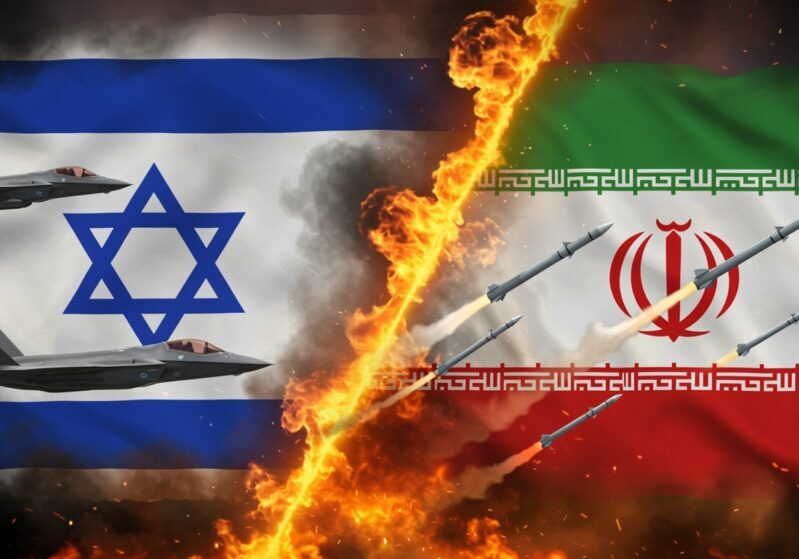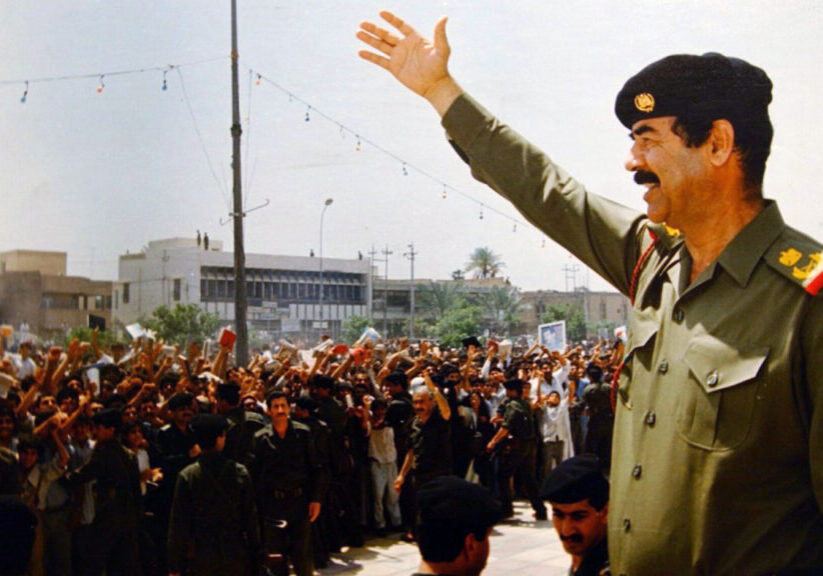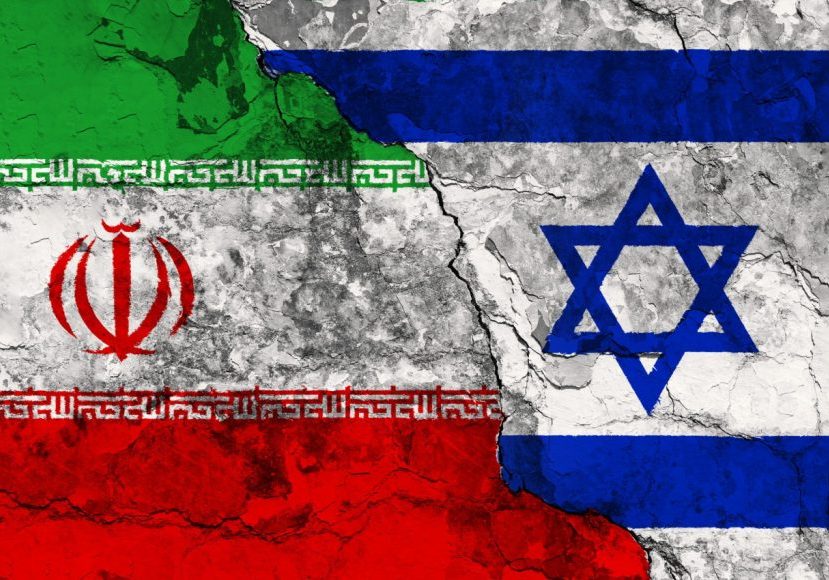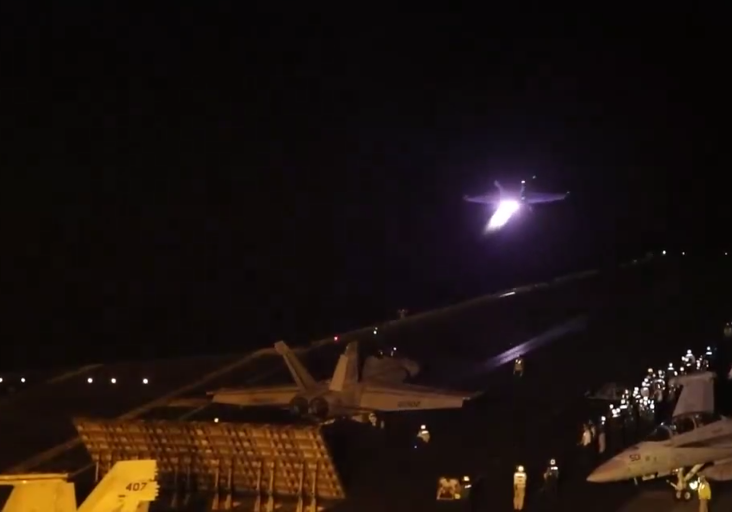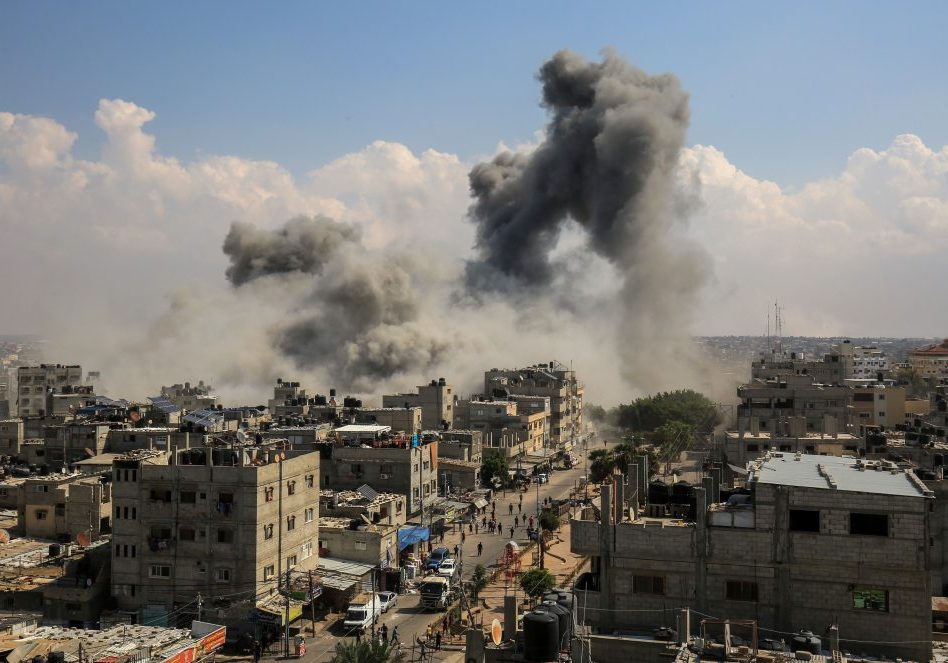Australia/Israel Review
A New Reality
Aug 1, 2006 | Douglas Davis
After the smoke clears
By Douglas Davis
The Israeli Foreign Minister flicks the hair from her face and leans forward. Israel, says Tzipi Livni, is determined to follow the Gaza withdrawal with a major disengagement from the West Bank. Up to 90 per cent. Some 80,000 Jewish settlers will be withdrawn and their settlements dismantled. All this to make way for a contiguous, viable Palestinian state.
“When we talk about the two-state solution,” she says, “we refer to the full essence of two nation-states, two homelands: one is Israel, homeland for the Jewish people; the other is Palestine, homeland for the Palestinians. This is the equation. If the Palestinian refugees are the problem, the establishment of a Palestinian state is the answer.”
Less than a month after our encounter in the Foreign Ministry in Jerusalem, Tzipi Livni’s elegantly woven tapestry is looking frayed. The fact that both Hamas and Hezbollah launched attacks across internationally recognised frontiers to which the Israeli Army had previously withdrawn was not lost on Israelis as Katyushas and Qassams rained down on them.
Plans to withdraw from the West Bank now seem a long way off. Former British Prime Minister Harold Wilson once observed that a week is a long time in politics. By such calculations, a month is a political eternity.
 |
| Defeating Hezbollah is crucial to the wider war against militant Islamism |
Regional Implications
The outcome of Israel’s military campaigns in Gaza and Lebanon could be crucial, and not just for Israel. For this war is about the security of the world as much as it is about the security of Israel. Many states throughout the world – in Africa, Asia, Europe and, of course, in the Middle East itself – are currently facing challenges from globalising Islamic extremists.
The outcome of the Hezbollah-Hamas war will be decisive to the outcome of the wider aims of the Islamic radicals, particularly Iran. If the UN blows the final whistle before Israel has comprehensively destroyed Hezbollah’s military capability, the result will be seen throughout the Islamic world – by moderates and extremists – as a triumph for radicalism. The best guess then is that the radicals, emboldened by their “victory,” will accelerate the scope and ferocity of their violence against all their perceived enemies.
The impulse will come from Syria but mostly from Iran, godfather of both Hamas and Hezbollah, whose mullahs nurture megalomaniac ambitions for supremacy of the Islamic world in an end-of-days conflict with the rest of the world. By successfully confronting Israel, albeit via proxies, Iran will have gone a long way towards achieving the credibility it craves and overcoming its inherent disabilities: firstly, that its rulers are adherents of the minority Shi’ite branch of Islam; secondly, that Iran is not an Arab state.
Will Israel prevail? Will it achieve its aims of dismantling Hezbollah’s military capability and persuade the international community to compel the Lebanese Government to deploy its army along its southern border with Israel? In theory, Israel certainly has the firepower to dictate the outcome. In the real world, however, the answer to both questions is, it will be very hard. The Iranians and the Syrians can be expected to intervene in the conflict if they believe that Hezbollah’s potency as a military proxy against Israel is imperilled. And at that point, facing unpredictable military consequences and certain economic havoc, the international community is likely to insist on a ceasefire.
“Hezbollah is one of the pillars of our security strategy,” a senior Iranian official said in London recently. “It forms Iran’s first line of defence against Israel.” That point was reinforced by the Qatar-based al-Watan, which quoted senior Syrian sources as saying that Damascus and Teheran would step in to prevent the military or political defeat of Hezbollah.
The Enemy of my Enemy?
The conflict is likely to have far-reaching implications for the region. If Hezbollah emerges with a shred of military credibility, Lebanon is likely to plunge back into civil war. At the same time, “triumphal” Islamist forces are likely to intensify their challenge to a slew of supposedly moderate Arab states that are currently in their sights – from Egypt and Jordan (both of which have signed peace treaties with Israel) to Saudi Arabia, Kuwait, Bahrain, Iraq and Algeria.
“Moderate” Arab leaders and their nations’ intelligentsia are already experiencing intimations of mortality: if Iran’s Islamist proxies could act so brazenly against the regional superpower, how much more ambitious, more ferocious, would they be in confronting these hated “pro-Western” regimes.
Saudi Arabia led the way in displaying a nervous disposition. An “official source” quoted by the official Saudi Press Agency described the Hamas and Hezbollah attacks as “miscalculated adventures” which created “a gravely dangerous situation that exposes all Arab countries and their achievements to destruction.” The Saudi source added: “It is time that these elements alone bear the full responsibility for these irresponsible acts and alone shoulder the burden of ending the crisis they have created.”
The collective raw nerve of 18 Arab foreign ministers was exposed at a hastily convened, but inconclusive Arab League summit in Cairo in mid-July. Conspicuously absent from their final declaration were the ritualistic denunciations of the Jewish state and the familiar clarion calls for pan-Arab unity. The maximum consensus they were able to achieve this time was a condemnation of the international community for having dropped the ball over the peace process. A new reality is in the air, and Arab media commentators have been quick to give it public expression.
Not Politics as Usual
Closer to home, there is now a large question mark over the long-term future of Israel’s governing coalition, which is based almost exclusively on a shared perception that Israel should withdraw – through negotiations, if possible, or unilaterally, if necessary – from much of the West Bank. The strictly pragmatic intention is to separate from the Palestinians in order to both ensure Israel’s democratic future as a Jewish state and to enhance its security. The demographic imperative remains, but after the recent violent convulsions, security trumps demography. Israel is likely heading for a domestic political crisis that could produce a protracted period of paralysis.
But the biggest losers will be the Palestinians. It is possible that their national dreams have been buried, once and for all, in the slums of Gaza and the ruins of south Beirut. That might have been predictable when Yasser Arafat died. His iconic persona embodied Palestinian nationalism; he was the symbol that defined Palestinian aspirations. But the symbol lacked substance.
Ultimately, Arafat was unable or unwilling to strike a deal with Israel that would have produced a state for the Palestinians. For him, it was always more important to travel hopefully than to arrive. He also failed to create the legislative, executive and judicial structures that would at least have provided the foundation of a state, ensured a seamless transition and kept the dream alive. Instead, his legacy was the detritus of a rotting, corrupt and despotic regime – without even a despot-successor capable of keeping the lid on the unwholesome broth.
Abba Eban once lamented that the Palestinians never miss an opportunity to miss an opportunity. So many opportunities – big and small, often driven by legacy-seeking American presidents – have come and gone. To consistently walk away from them, as both Fatah and Hamas leaders have done, might seem like gross carelessness. Or is it?
In retrospect, it appears that the Palestinians have been doing everything possible to avoid having to make a deal that involved a two-state solution which would, inevitably, signal a formal end to the conflict.
It is now becoming clear why there has been, and is likely to continue to be, a consistent pattern of Palestinian rejection of diplomatic formulae designed to end the conflict. Palestinians simply have more to lose than to gain by striking a deal with Israel.
Firstly, they know that it is the conflict with Israel that has given them the precious gift of international significance and propelled their cause to the top of the global agenda. Without the conflict, they will be much diminished. They will continue to receive aid handouts from the international community, but these will be weighed alongside the needs of other, far more impoverished, nations.
Secondly, in a post-conflict environment, the doors of international leaders will not open quite so swiftly or quite so wide, even to moderate Palestinian leaders. Rather than being feted in Western capitals with guards of honour and state banquets, Palestinian leaders will be required to attend to the more mundane business of building hospitals and schools, arranging the garbage collection and ensuring that the sewerage system is functioning efficiently.
Thirdly, a settlement with Israel by “moderate” Palestinians would inevitably provoke internecine strife between and within the competing factions that play on the Palestinian stage – not only Hamas, but also sections of Fatah and the radical secular groups which are implacably opposed to recognising the legitimacy of the Jewish state. A deal with Israel carries within it the seeds of a Palestinian civil war.
Fourthly, it has become blindingly obvious that the Palestinians – moderate and radical, secular and religious – see their future not in a two-state idyll, but rather in a unitary Palestinian state that encompasses all of mandatory Palestine. This comprises not just the West Bank and Gaza, but also Israel and Jordan.
Three days before the Gaza attack, Livni’s impassioned plea for international support of a two-state solution sounded quite reasonable, even though Qassam rockets had not stopped raining down on the small Israeli town of Sderot. Was she not concerned, I asked, that withdrawal from large swathes of the West Bank would create hundreds of Sderots? She appeared irritated by the question: Israel, she said, did not intend simply to walk out of the West Bank and “throw the key over the fence.” That is why it was important to pursue negotiations with the Palestinians on the issues of borders and security.
Her conclusion was that, ultimately, the Palestinians would have to agree to a demilitarised state.
This looks very unlikely today. The Hamas administration forfeited hundreds of millions of aid dollars when it refused to recognise Israel, renounce terrorism and honour previous agreements. It is not about to abandon the central thesis in its founding covenant, abandon what it sees as its divinely ordained imperative and, not least, betray its Iranian sponsor.
Israel, the Palestinians, the wider Middle East and much of the rest of the world are poised to enter uncharted waters. The only point of certainty now is that the journey will be fraught with unpredictable danger.
![]()
Tags: Iraq

